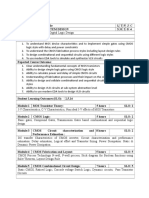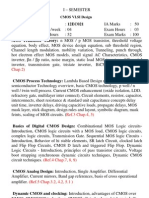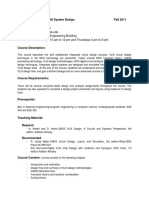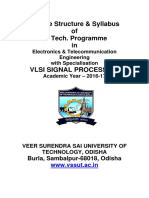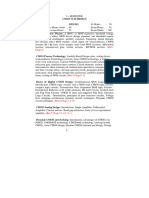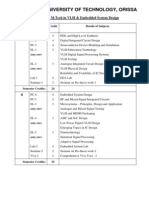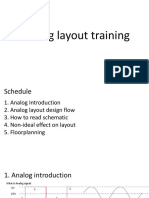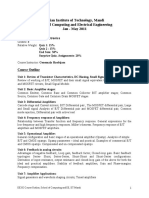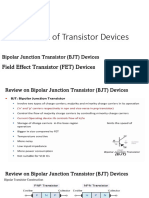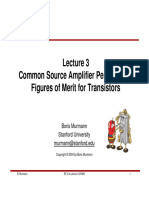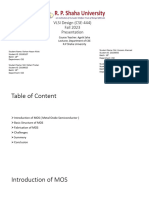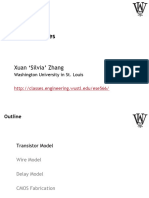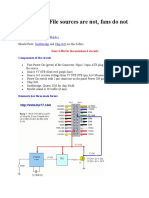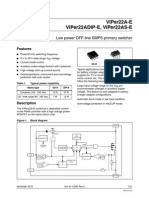0% found this document useful (0 votes)
126 views3 pagesVlsi
The document outlines a course on VLSI system design. It details course objectives, expected outcomes, modules, textbooks, and evaluation methods. Key topics include MOS transistor theory, CMOS logic design, circuit characterization, layout design, and sequential/subsystem design. Labs involve CAD tools, basic cell design, layout, and designing adders, multipliers and memory.
Uploaded by
Mayank Karwa 16BEC0067Copyright
© © All Rights Reserved
We take content rights seriously. If you suspect this is your content, claim it here.
Available Formats
Download as PDF, TXT or read online on Scribd
0% found this document useful (0 votes)
126 views3 pagesVlsi
The document outlines a course on VLSI system design. It details course objectives, expected outcomes, modules, textbooks, and evaluation methods. Key topics include MOS transistor theory, CMOS logic design, circuit characterization, layout design, and sequential/subsystem design. Labs involve CAD tools, basic cell design, layout, and designing adders, multipliers and memory.
Uploaded by
Mayank Karwa 16BEC0067Copyright
© © All Rights Reserved
We take content rights seriously. If you suspect this is your content, claim it here.
Available Formats
Download as PDF, TXT or read online on Scribd
/ 3




